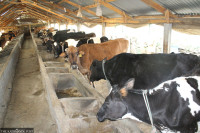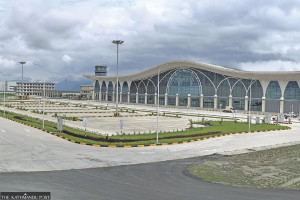Money
Malaysia mulls lifting ban on foreign labour
Malaysia has been mulling lifting the ban on foreign labour after an acute manpower shortage started hurting industrial output, local media reported.
Ram Chandra Giri
Malaysia has been mulling lifting the ban on foreign labour after an acute manpower shortage started hurting industrial output, local media reported.
The Southeast Asian country is one of the major destinations for Nepali migrant workers. It stopped hiring foreign workers in February.
Many factories are short of workers and their business development has been hampered. Worried employers have urged the government to revoke its decision to stop hiring foreign workers as the labour shortage has put their billions in investment at risk.
The Malaysian government has planned to open four areas—production, construction, agriculture and furniture manufacturing—to foreign employment, according to local media. However, the government hasn’t decided when this will happen.
Malaysian industrialists and other stakeholders asked the
government to lift the ban after factories started facing a severe shortage of manpower. The
labour shortfall in the industrial sector reached 84 percent a few weeks ago.
“In case of a chronic shortage of manpower in certain sectors, we have to lift the ban for those sectors,” The Star Daily quoted Malaysian Transportation Minister Liow Tiong as saying.
He said the Malaysian
government was preparing to reform the currently running rehiring programme to legalize the status of migrant workers
staying illegally and make it more effective.
A majority of Nepali migrant workers in Malaysia are employed in service, security and manufacturing. There is no indication that the service sector will be opened to foreign employees. However, Minister Tiong has said that other sectors will also be gradually opened to migrant workers.
The number of Nepali migrant workers going to Malaysia dropped sharply after the Nepal government launched a ‘free visa, free ticket’ scheme and the Malaysian government decided to suspend recruitment of new foreign workers. Before that, nearly 200,000 Nepalis used to join the Malaysian workforce annually.
According to a 2015 World Bank report, Malaysia has the fourth largest number of foreign workers in East Asia-Pacific.
Malaysia has 2.1 million legal migrants, and roughly 2 million more who are in the country without valid documents, according to Malaysian media reports. These workers and their families are mostly from Indonesia, Myanmar, Bangladesh and Nepal. Employers praise them for their willingness to do the so-called 3-D jobs—dirty, difficult and dangerous.
Malaysian employers rely on these workers to assemble electronic parts in factories, pluck palm oil fruits in plantations, wait tables in coffee shops, construct buildings and provide security at housing estates.
Meanwhile, 2,600 Nepali workers have been registered under the rehiring programme. After passing a medical test and documentation, they will be granted permission to stay and work in Malaysia for three to five years.
According to media reports, nearly 55,000 foreign migrant workers have been granted permission to work legally in Malaysia under the rehiring programme. The number of Nepalis who have been rehired is low compared to the total number.




 8.12°C Kathmandu
8.12°C Kathmandu














